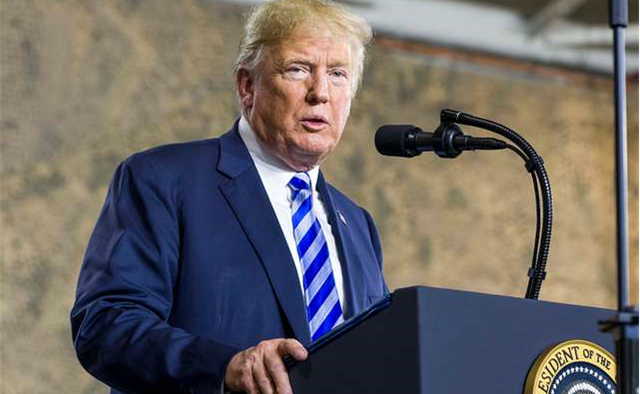Trump’s cabinet and advisor choices are shaping up to be a who’s who of alleged sexual abusers and harassers.
Pete Hegseth, Trump’s pick for defense secretary, has been accused of raping a woman in 2007. Education department pick Linda McMahon was named in a lawsuit for ignoring child sexual exploitation. Robert F. Kennedy, Jr. faces sexual assault allegations from the family babysitter. And though he has since withdrawn his nomination, Matt Gaetz, Trump’s initial pick for Attorney General, has been investigated for alleged statutory rape by the Justice Department.
In addition to the cabinet choices, Trump’s close advisor Elon Musk has been accused of workplace sexual harassment, while another advisor, Vivek Ramaswamy, has been sued for allegedly retaliating against an employee for reporting sexual harassment of an executive.
We should not be surprised by these selections — after all, in 2023 Donald Trump himself was found liable for sexual abuse and defamation of E. Jean Carroll, who was awarded a judgement of $5 million. Nearly 30 women have accused Trump of sexual assault, harassment, and nonconsensual sexual behavior. And who could forget his repulsive comments on videotape about grabbing women “by the pussy” and being able to “do anything” to them?
In the wake of Trump’s election, a number of men, including white supremacist and Hitler fan Nick Fuentes, have publicly touted “your body, my choice.” It seems rape culture is alive and well, and soon to be in the White House. It is already evident in the Supreme Court.
Rape culture normalizes sexual violence and trivializes the experiences of survivors. This may include disbelieving victims’ accounts, blaming victims for their own harm, and excusing perpetrators of sexual assault. The tired adage “boys will be boys” captures rape culture by minimizing violence against girls and women and framing male violence as only natural.
For many survivors of sexual assault, the presidential election was both triggering and a reminder that justice is elusive. E. Jean Carroll tweeted, “I tried to tell you.” Survivors we know personally reacted with shock, dismay, and disgust. Others took to social media to share their reactions.
Trump’s insistence on appointing to his cabinet individuals accused of sexual harassment is a painful blow for many survivors, many still reeling from a first Trump presidency. To the extent these men are confirmed to such positions of power would amount to institutional betrayal perpetrated by the U.S. Senate.
Institutional betrayal is defined as an institution causing harm to the people who depend on it. Dozens of research studies have documented the mental and physical health harms caused by institutional betrayal.
Why is institutional betrayal so potent? We depend on our institutions, including the legislative branch of the federal government. Institutions are the building blocks of a civil society. They are crucial to our well-being. We depend on our government, police, and hospitals to protect our lives. Sometimes institutions really help us.
But sadly, institutions often make our lives worse, not better. They don’t protect us from harm. They are indifferent when we suffer. They focus first on profits and self-protection. The most vulnerable people are the hardest hit. We are in a terrible bind: we depend on institutions that betray us. Institutional betrayal is often toxic both materially and psychologically.
What is desperately needed now is institutional courage on the part of our elected senators and the rest of the U.S. government. Some senators demonstrated their ability to stand up to Trump’s elevation of those accused of sexual violence by signaling enough doubt about Gaetz to prompt his withdrawal from consideration.
We are calling for senators, no matter their political party, to behave with institutional courage.
Dr. Jennifer J. Freyd is Professor Emerit of Psychology, University of Oregon, and Founder and President of the Center for Institutional Courage. Dr. Monica J. Casper, a sociologist, is an expert on gender-based violence.

